
Former diplomat Datuk Ramanathan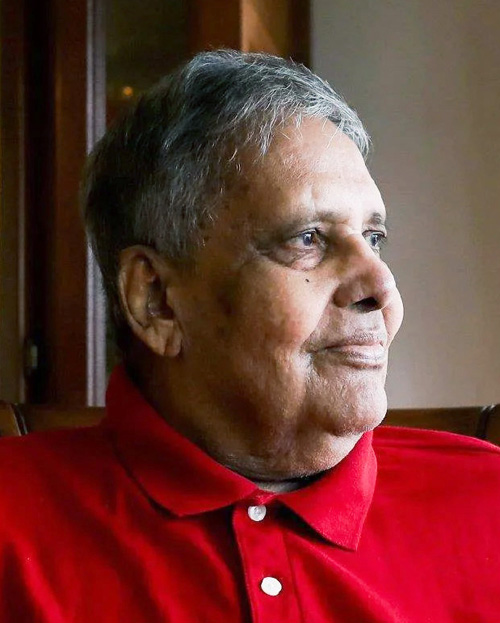
Vengadesan reflects on a life shaped
by diplomacy and rooted in home.
Datuk Ramanathan Vengadesan:
From village boy to
globe-trotting ambassador
"WHICH do you want to know first? Triumphs or tragedies?" With that disarming question, I knew we were in for an engaging afternoon.
A veteran of the diplomatic corps, Datuk Ramanathan Vengadesan reflects in his memoir Triumphs and Tragedies: Village Boy to Globe-Trotting Ambassador on a life shaped by courage, grit and humour - a candid journey through both soaring highs and crushing lows.
In his modest Ampang home, afternoon light spills through the window, catching the twinkle in his eyes and the curve of a small smile. He'd only meant to tease with the earlier question, but the spirit in him is unmistakable.
When his wife, Datin Christie Gonzales Vengadesan, asks if he'd like to change into a more formal batik shirt for the photographer expected later, he shakes his head vehemently.
"I like my T-shirt!" he declares.
"You look pretty good in it," I assure him.
"My daughter bought it for me," he adds, a note of quiet pride in his voice.
And so he sits across from me, resolute in his red polo shirt, ready for the questions to come.
"My father has his days when his recollection falters," his son Martin had cautioned me. At 80, lapses are inevitable. But Martin - a journalist, author and musician in his own right - also hinted that behind those moments lay a trove of remarkable stories.
If Martin's own life had been eclectic, his father's 35-year career in Malaysia's diplomatic service promised nothing less: postings that took him across the globe, encounters with world leaders and close working ties with nearly every Malaysian prime minister.
And if there are days when memory slips away, today isn't one of them. Vengadesan is razor-sharp, anecdotes at the ready, his red shirt as defiant as his spirit.
He begins: "Martin was very interested in my career and profession. I used to recount many stories to him, bits and pieces from my postings."
Those fragments, shared between father and son over the years, have finally culminated in a book - a memoir that stitches memory and history into one narrative.
BORN INTO HISTORY
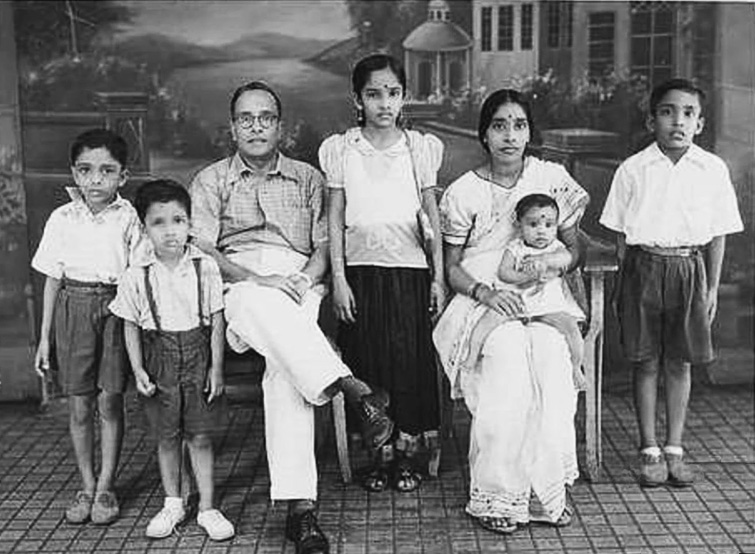
Born at the tail end of World War 2, Vengadesan recalls how, even as the Japanese occupation ended, families of Indian descent - like much of Malaya's population - were left traumatised by years of hardship. Many couldn't decide whether to remain in Malaya or return to India, their futures clouded by uncertainty.
He shares: "My family went back to Tirunelveli in India when I was just 3. But we eventually returned to Malaya because there were better job prospects here."
There were many hardships from his early years, he remembers. One that stands out is a quarrel with a relative they had first lived with in Singapore, who dismissed his mother's insistence on educating her children. The argument escalated, forcing the family to leave the house and spend the night on the cold floor of a temple in Serangoon.
"I don't know why that memory stands out to me," he says wryly, adding: "Perhaps because it taught me how much my parents were willing to sacrifice for our future."
His childhood wasn't easy, he reveals. "Rice was scarce, so we ate tapioca, used kerosene lamps and money was tight."
Yet amid the struggle were simple pleasures - playing with friends, running in open fields and losing himself in the Billy Bunter stories by Frank Richards.
Vengadesan was 12 when Malaya gained independence.
"We followed the news with excitement," he recalls in his book, noting how Alliance Party leaders Tunku Abdul Rahman, Tun Tan Cheng Lock and Tun V.T. Sambanthan travelled to London in 1956 to negotiate the federal constitution with the British.
"Tunku was a true leader of all Malaysians, and we rallied behind him," he wrote, adding: "It's impossible to forget the emotion of hearing him cry out, 'Merdeka! Merdeka! Merdeka!'"
TRAGEDY IN HISTORY
If Merdeka in 1957 marked the birth of a nation, Malaysia Day in 1963 should have been another proud milestone. But for Vengadesan, the day was etched in sorrow.
His father, a court interpreter, died in a road accident on that very day - Sept 16, 1963.
The 18-year-old had gone to Stadium Merdeka for the celebrations when a friend found him in the crowd with the devastating news.
His father had suffered a heart attack while driving to a funeral. His mother and two friends were in the car when it swerved toward a ravine. Someone pulled the handbrake just in time, stopping the vehicle at the edge.
He was rushed to the Kuala Lumpur General Hospital, but pronounced dead on arrival.
Vengadesan falls silent for a moment.
"It was the hardest period of our lives," he finally says, adding: "My father was the sole breadwinner. There were debts to settle. So, my three older siblings and I had to balance part-time jobs to help our mother."
He pauses again before speaking.
"It put a huge responsibility on our shoulders," he reflects, adding: "We were
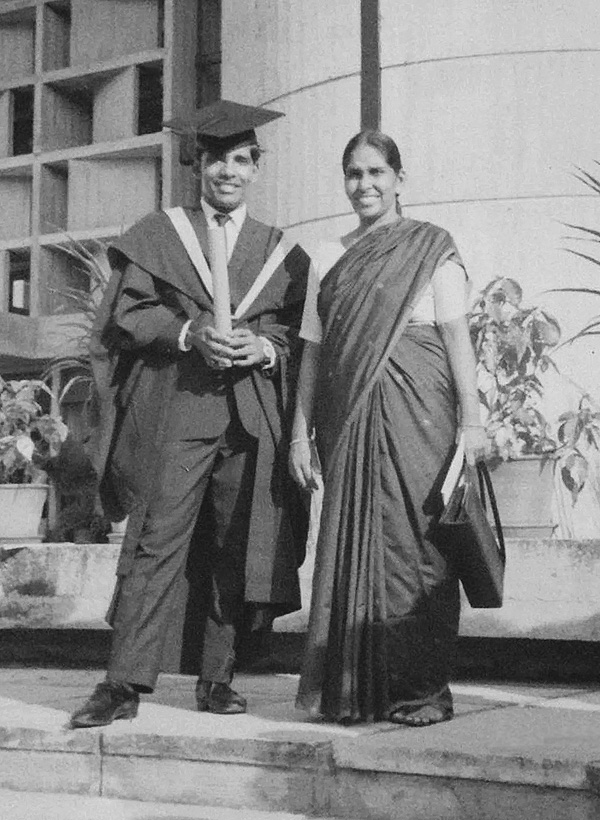 good students and managed to get into Universiti Malaya's very first pioneering batch, but even then we had to work to support the family. My mother was left a widow with eight children to care for and two of them were autistic."
good students and managed to get into Universiti Malaya's very first pioneering batch, but even then we had to work to support the family. My mother was left a widow with eight children to care for and two of them were autistic."
To make ends meet, Vengadesan gave tuition classes at his home in Old Klang Road while juggling his studies.
After graduating with a degree in English Literature, he worked briefly as a teacher. A chance encounter with Tun V.T. Sambanthan, then Malaysia's telecommunications minister, led to a job with Telekoms as a telegraph officer.
He was still with Telekoms when the May 13 riots broke out in 1969. Decades later, the memory of that dark moment remains raw. Vengadesan breaks down in tears.
"It was a dreadful time," he manages between sobs. "Can you imagine? Malaysians killing each other... brothers of different races turning on one another?"
He'd gone to his sister's house where they were celebrating the first birthday of his nephew.
He warned all of them: "Don't go out of your house because I saw dead bodies floating in the Klang River!"
The May 13 riots, sparked by post-election tensions in Kuala Lumpur, were among
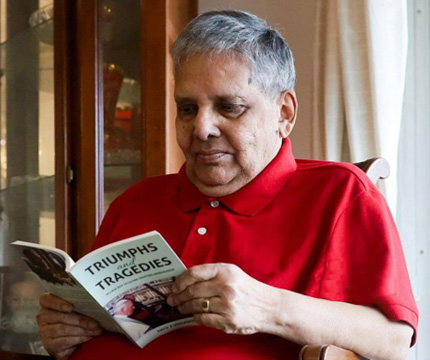 the darkest chapters in Malaysia's history. The racial clashes left scores dead, homes and businesses destroyed, and led to the declaration of a nationwide state of emergency. Many feared the country would never recover.
the darkest chapters in Malaysia's history. The racial clashes left scores dead, homes and businesses destroyed, and led to the declaration of a nationwide state of emergency. Many feared the country would never recover.
"The city was a war zone. There were corpses on the streets while buildings and vehicles were set ablaze," he describes tearfully, adding: "Many thought Malaysia would be finished, that we'd never recover from this disaster. I pray such a tragedy never happens in our beloved country again."
When the violence subsided, Telekoms was tasked with restoring communications in affected areas. In reality, staff like Vengadesan were also deployed to distribute emergency food rations, moving under armed escort into riot-hit parts of the city.
For his efforts, he later received a government citation for assisting in the relief operations.
NEW CAREER PATH
For Vengadesan, the real turning point came in October 1969. After a few steady years at Telekoms, an opening at the Foreign Affairs Ministry pulled him into the world of diplomacy - a path that would define the next three decades of his life.
"I enjoyed languages and the idea of travel," he explains, adding: "My father spoke several languages fluently and that certainly influenced me to consider the foreign service as a career."
At Wisma Putra, his training took shape under the Colombo Plan for diplomacy, organised by the Australian government. Early placements took him to Canberra in 1971, a five-week attachment at the Australian High Commission in Malta, and even an eye-opening two-week stint in Papua New Guinea.
One of his earliest assignments was as protocol officer for British prime minister Sir Edward Heath during his official visit to Malaysia in January 1971 - the first by a British premier.
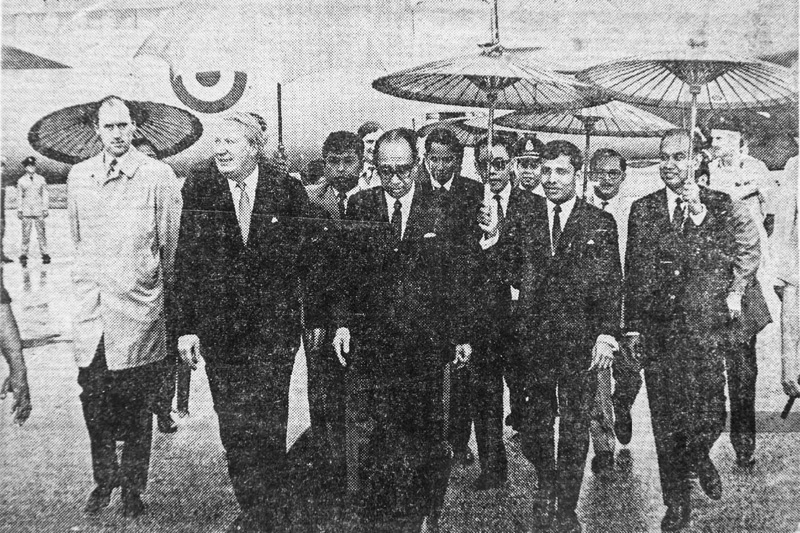
"It was in the newspapers!" Vengadesan laughs, adding: "I was photographed standing next to Heath and our prime minister, Tun Abdul Razak, holding an umbrella to shield them from the heat!"
From those early days, his career took him far and wide. He served in the USSR, Japan, Laos, Belgium, Thailand, Mali, Senegal, Namibia and Italy, visiting more than 70 countries. His first major posting came in 1972, when he and his new bride, Christie, arrived in Moscow, where the Malaysian mission itself was still in its infancy.
Christie had entered his life just before that turning point. Though both had studied at Universiti Malaya, their paths never crossed on campus. They met later. In his memoir, he describes her as beautiful, intelligent and kind.
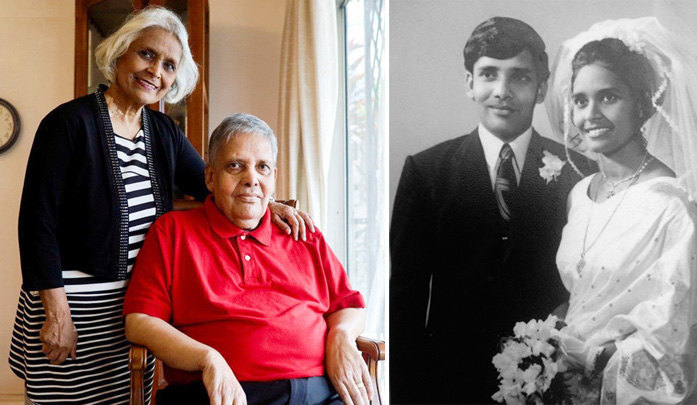
From his very first posting in Moscow, she became his anchor - adjusting to life abroad, standing beside him through every assignment and raising their three children along the way.
As we talk about those days, it's impossible to miss the gentle bond between them. His wife of 53 years sits close, her presence quiet but steady, stepping in only to nudge him softly when a date or detail slips his mind.
LIFE OF DIPLOMACY
The many countries and postings he experienced as a diplomat became a fountain of memories, many of which found their way into his book. Among the most vivid was his time in the USSR, where he spent two years in the thick of the Cold War, living under the shadow of a looming nuclear threat.
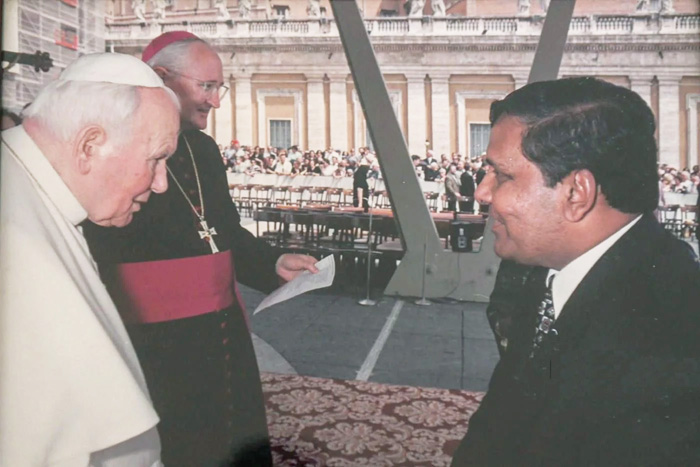
"My posting in Moscow was both a challenge and an opportunity to learn," he notes in his memoir.
Over the years, Vengadesan mastered several languages - English, Tamil, Malay, French, Italian, Russian and Japanese.
"I think I picked up that knack for languages from my father," he reflects.
But language was only one part of the diplomat's craft.
"To be a good diplomat, you need to be curious and accepting of other cultures, have an understanding of history and politics, be open to negotiation and compromise, and know when to be discreet," he shares.
Of course, there were moments of danger and trepidation. During his posting in Mali, a military coup against President Moussa Traoré sparked riots that spread through the capital. At one point, rioters came close to Vengadesan's residence until his translator urged him to hoist the Malaysian flag.
"They will respect that and won't burn your house," he was told. Thankfully, the house was spared and the unrest eventually subsided.
There were also memorable highlights in Vengadesan's long and distinguished career, among them an audience with Pope John Paul II.
"What I recall most was the look of kindness, tenderness and love as he raised his eyes to meet mine," he writes in his book. Though His Holiness was already battling severe Parkinson's disease, his sharpness of mind was unmistakable.
"I will never forget that meeting," he tells me quietly.
REFLECTIONS
Throughout his years in service, Vengadesan observed Malaysia's leaders up close and saw firsthand how they shaped the country's place in the world.
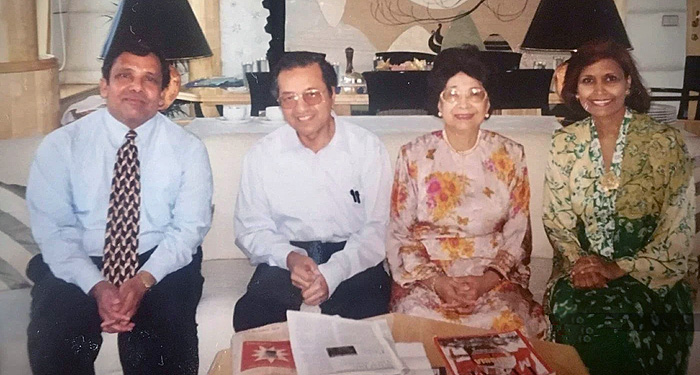
He recalls Tunku Abdul Rahman with deep respect, calling him an inspiring figure who carried Malaysians through defining milestones of history.
Tun Hussein Onn, he says, stood out for his honesty and diligence, while Tun Abdullah Ahmad Badawi left an impression as a kind and approachable leader.
News of Abdullah's recent passing, he admits, brought him great sadness.
"The most impactful, I must say, is Tun Mahathir," he reflects, adding: "He put Malaysia on the global map, pushed for modernisation and spoke up for developing countries. But I didn't always agree with his ways of doing things."
Ever the diplomat, Vengadesan avoids dwelling on controversy, though he doesn't hide that he has his opinions. What he prefers to emphasise, especially now in the twilight of his years, is his enduring love for the country he served.
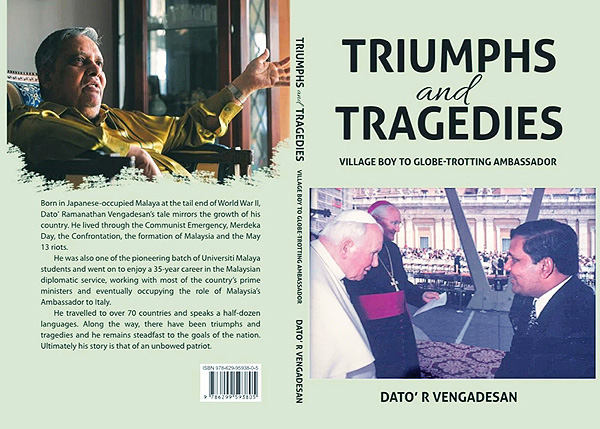
"I still believe Malaysia has what it takes to shine," he says firmly, adding: "We may have our challenges, but we're blessed with diversity, talent and resources. What we need is unity, integrity and strong leadership to take us forward."
Soon it's time to leave, but before I do, I ask him one final question: what advice would he give to Malaysians today?
He pauses, taking his time before replying: "My advice is to love your country, and to learn to understand one another. It's the only way we can move forward together."
The ending of Triumphs and Tragedies echoes that sentiment. He has travelled to more than 70 countries, but never in his wildest dreams, he writes, would he trade Malaysia for any other place.
And so he sits across from me, a man shaped by service and sacrifice, still a passionate Malaysian - quietly resolute in his simple red polo shirt, a gift from his daughter.
Ramanathan Vengadesan: V.I. 1958 - 1964
 The V.I. Web Page
The V.I. Web Page